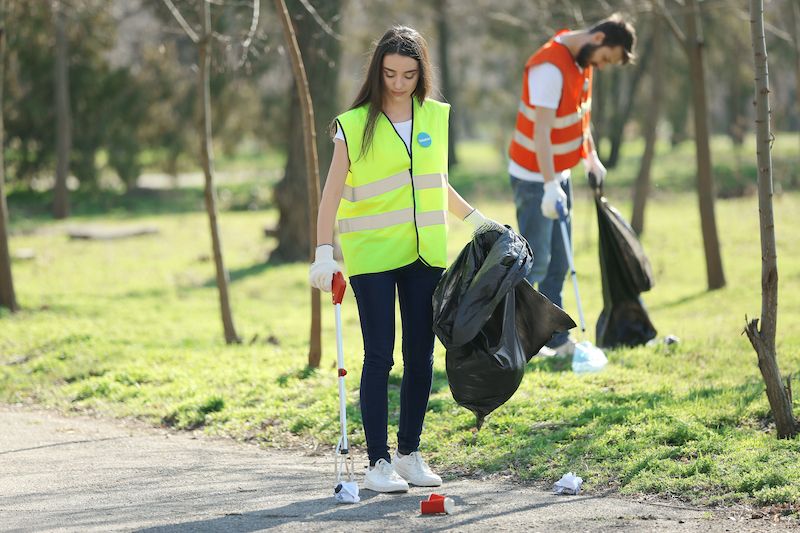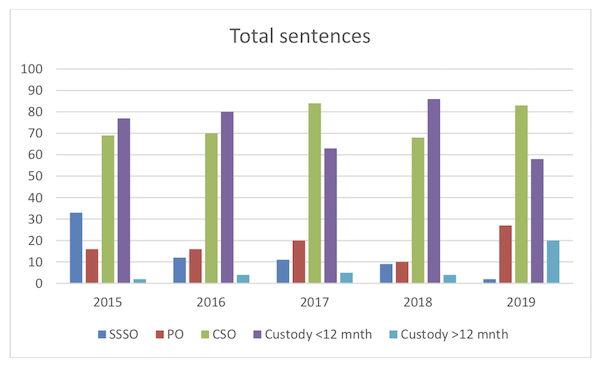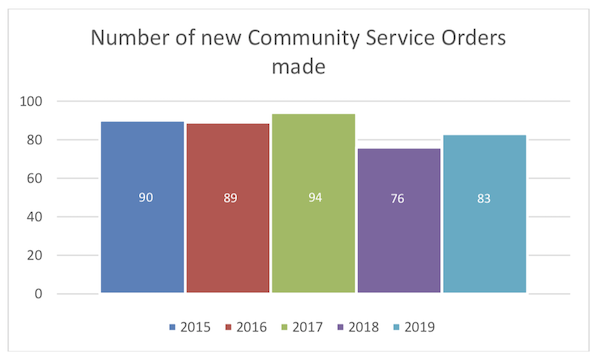

Last year saw a significant rise in the number of offenders being handed community service orders as an alternative to a prison sentence.
When given as a direct alternative, the orders require defendants to carry out a specific number of hours of unpaid work and, if they don't, they can be sent to prison for the equivalent number of weeks.
In 2019, those who successfully completed their unpaid work avoided a cumulative total of 275 months imprisonment - nearly 23 years - which would have been the sum of the equivalent sentences given. That's 74 months up from the year before.
The statistics have been released in the 2019 Probation Service Annual Report, which looks in detail at the number of community service orders handed down by the courts.

Pictured: The Magistrate's Court handed out an increased number of community service orders last year.
"People doing community service have to work at least five hours a week, mainly in work parties on a Saturday and Sunday because most of them are working, so they have to use their weekends to fulfil their hours," explained Chief Probation Officer, Anna Guilbert. "It can take them a good few months to complete."
CSOs range in hours from 40 to 180 for those sentenced in the Magistrate's Court and can go up to 240 in the Royal Court, which tends to deal with crimes of a more serious nature.
"I think the people on community service appreciate the fact that they're able to give recompense to the community instead of a short prison sentence," Ms Guilbert continued. "Most of them are motivated to turn up and do the work. We do try to give them meaningful work in charities or in workgroups and we try to give them good role modelling from their supervisors."
Pictured: Chief Probation Officer Anna Guilbert.
Almost one in five, 19.5%, CSOs were breached last year, with 17 offenders returning to court as a result. Of those people, five were sent to prison, five had further hours added, one had their order replaced with a suspended sentence, one was given a fine, three absconded from the island, one didn't receive another penalty and one breach was withdrawn.
Of the 9,430 hours ordered by the courts, 7,292 hours were completed in full.
"If offenders do community service, they can keep their accommodation, they can often keep their employment and it maintains family relationships - some of which are disrupted by short term prison sentences," Ms Guilbert added.
However, she doesn't believe the rise in the number of CSOs as a direct alternative to custody is a sign of change in the justice system.

Pictured: 83 new community service orders were made last year.
"We're very much ruled by how much crime there is, how much comes through the courts, what sort of offences are being committed," she went on. "The court always asks us for an assessment report and, if we feel that community service is appropriate, we will recommend it to the court.
"The court has made a really positive uptake of community service orders and we do get 90% of people through with no problems."
The main beneficiaries of CSO work in 2019 included Les Cotils, Floral Guernsey, La Hougette School, Edible Guernsey and North Football Club.
"I am very grateful for all the help that community services have given me," said one beneficiary. "As one person working at La Vallette, I make very little difference. With a group of young men and women, a lot of work gets done."
Comments
Comments on this story express the views of the commentator only, not Bailiwick Publishing. We are unable to guarantee the accuracy of any of those comments.